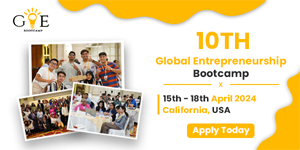
Fully Funded Kinship Conservation Fellowship Program 2020 in USA
Details
Applications are now open for fully funded Kinship Conservation Fellowship Program 2020. The fellowship provides the opportunity to learn and apply principles and practices to improve how practitioners interpret and respond to complex environmental conservation problems. The fully funded Kinship Conservation Fellowship Program 2020 will take place from June 28th to July 29th in Bellingham, Washington, USA.
Using a case study methodology, Fellows identify new solutions to real-life conservation challenges. Further, over the course of the month, Fellows attend dynamic sessions, participate in collaborative and independent projects, and attend field trips. Moreover, the curriculum is delivered by a faculty of global experts who work closely with each carefully selected cohort of Fellows to explore new ways to apply market-based approaches to environmental issues.
Kinship Conservation Fellowship Theme
- Cultivating Leadership: Tools and Strategies
Exercising leadership in the context of environmental conservation requires learning to deal with complexity, uncertainty, ambiguity, paradoxes, and change. Further, throughout the month, Fellows become familiar with a set of tools and frameworks to help them exercise leadership at the individual, organizational, and systems levels. Further, they learn key principles and practices used in the Adaptive LeadershipTM framework as well as explore their strengths and talents using Gallup’s strengths-based approaches. - Market-based Conservation Strategies
The starting point of the course is the basic question of “why” market tools. Why, philosophically and practically, can market-based tools best solve some conservation problems (but not all)? Next is the “what” of market tools. Also, what parts of economic theory and practice can be used by conservationists? Further, sessions cover the basics of supply/demand, economic valuation, and what economic and statistical tools can be used to further conservation goals.
Benefits
- Those who are selected receive a month of valuable training and a $6,000 stipend.
- The stipend defrays travel to and from Bellington and helps cover living expenses, either at the program or at home.
- Similarly, fellows are provided housing, dinner and daily lunch allowance during the time of the program.
Who are eligible for Kinship Fellowship Program?
- Possess a minimum of a four-year U.S. college degree (or its equivalent).
- Have a minimum of five years of relevant work experience, after completing a degree.
- Be proficient in spoken and written English.
- Similarly, be a conservation practitioner (rather than an academic or researcher).
Selection Criteria
Applicants who meet the above requirements will be evaluated in the following areas:
- Proposed project viability and appropriateness
- Leadership potential
- Similarly, potential contribution at the Fellowship program and ongoing membership in the Fellows Community
Application Process
Applicants must use the online application to apply to the Fellowship. Here is what the requirements are for the application:
Statements
- Summary of your leadership experience. (150 words)
- Why you wish to attend the Kinship Fellows program. (150 words)
- What you see yourself doing in five years. (250 words)
- Summary of your experience working with market-based tools. (250 words)
- Similarly, the description of a project or an environmental challenge or issue in your work and how you plan to develop a solution using market-based approaches. (350 words)
- Also, your role in the project previously described. (150 words)
Resume
Your resume should reflect at least five full years of experience working in an environmental field. However, five years cannot include time spent pursuing a degree.
Letters of Recommendation
Applicants must provide two letters of recommendation: One from a current employer and one from a colleague. Moreover, the selection panel will use these letters to assess each applicant’s capacity for leadership. Specific examples include:
- Your ability to take action on conservation issues
- Your ability to mobilize and motivate others
- Similarly, your capacity to produce innovative solutions to complex environmental problems
- Also, your potential to contribute to an ongoing community of leaders
Specifications
| Type of Opportunity | Conferences Exchange Programs |
|---|---|
| Event Date | 28 June,2020 to 29 July,2020 |
| Deadline | 12 January,2019 |
| Country | USA |
| City | Bellingham, Washington |
| Open to | All Nationalities |
| Organizer | Kinship Conservation Fellows |
| Contact the organizer | [email protected] |
